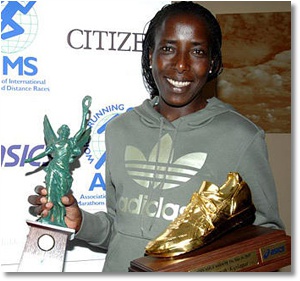I have been on the lower end of the income scale for considerable periods of my life. I’ve been jobless, cashless, food-less and hopeless. I learned how to value money, which is totally different from being cheap. I shared a doma (fruit) with a friend as dinner, I am an expert at recycling old food and I am very good at making Al-Hamam Tar – “the pigeon flew” – soup, which is basically boiling onions, salt and lemon. It looks, smells and supposedly tastes as if there was a pigeon in the soup.
I discovered something new: broke-ness is in the eye of the beholder. I developed some sort of desensitisation to broke-ness. I have lowered my living expenses and standards, I compare myself with people with worse standards. I look at genuinely poor people, stop for five seconds, scratch my head and then think, “I’m rich, Alhamdulillah” (Praise to God).
Broke-ness is relative. I have a friend from one of the Gulf countries who declares bankruptcy when he reaches a couple of thousands of pounds in his bank account. I abuse him for that. I usually consider myself still rich if I have more than 50 pounds in my pocket. So basically this out-of-money mental state depends on the person’s original financial status. A guy with a 10 000 pound-salary may think he is broke if he only has 100 pounds left, while another might consider himself quite rich if he has 10 pounds in his pocket by the end of the day.

So what is “broke”? How can we define someone as being financially broke? We can say broke is a state of not being rich, but this is just like defining black as not being white. And on the other hand, how rich is rich?
Broke-ness in my humble opinion is definitely not the lack of cash. It is rather a state of mind. It is a terrible fake feeling, but if the person thinks too much about it, he will eventually believe it. An individual may consider himself broke in the following situations:
1. If the person was in a better financial status previously. For example, last week he could have afforded to eat in Real Burger, while this week he can only afford to eat at A’awad Torash (a local restaurant). Such people should learn that they were not born kings – if you can’t afford a smart phone, buy an Abu Lamba (“the one with the bulb”. This refers to the Nokia 100 handset, which has a built-in flashlight.)
2. When a person compares himself to richer people around him. They have “better”, or I have “less”. This mostly leads to jealousy. These people should learn to appreciate what they have.
3. Jobless people. Some people are actually jobless, but some are just proud. This is quite common among educated people. They feel shame in working in different, less financially rewarding fields. These people have no excuses whatsoever. If you want money, go and get it. I am a dentist; other than fixing bad teeth, I worked many jobs. I was a shopkeeper, I taught English, I coached basketball and I once sold cookies in public. I feel more proud and less broke than the proud non-working people.
What I’m saying is, being broke is relative rather than true. Unless you can’t afford to put food on your table, get over it, you’re not broke.
Yasir Elkhider for 500 Words Magazine, an independent online magazine about Sudan. It is an amalgamation of various thoughts and opinions on Sudanese society, culture and life, and provides a platform for discussion among Sudanese youth. Connect with 500 Words Magazine on Twitter and Facebook.



